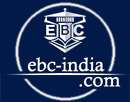The concept of a national institution to act as a "pace-setter and a testing ground for bold experiments in legal education" came up before the Bar Council of India in the context of the Council's statutory responsibility for maintaining standards in professional legal education. The idea gained strength in the Legal Education Committee of the Bar council of India and eventually the Bar Council of India demanded a 'deemed University' status from the University Grants Commission. With the cooperation of the Government of Karnataka and Bangalore University as well as the initiatives of senior members of the Bar Council of India and the Karnataka State Bar Council the idea of National Law School of India caught the imagination of the legal community.
As the idea gained increasing recognition and support from within the Council, supporters of the National Law School of India worked at different levels to establish it in the interests of better legal education and higher standards of legal research and training. After thirteen long years of suspense and uncertainty, the Government of Karnataka established National Law School of India University on the August 29, 1987, through a Gazette Notification under the National Law School of India Act (Karnataka Act 22 of 1986).
The Act provides the University complete administrative and academic autonomy together with flexibility for innovation and experimentation in the pursuit of excellence. The management of the institution rests largely with the organized legal profession of the country. Outside the administration of justice, NLSIU is perhaps the best example of Academy-Bar-Bench cooperation in India today. The Chief Justice of India, as Visitor of the NLSIU and the Chairman of the Bar Council of India as Chairman of the General Council of the School provide a stature and prestige unparalleled in the history of legal education in India. A large number of retired Judges of the Supreme Court and High Courts as well as Senior Advocates assist the NLSIU in its teaching and research programmes making education at NLSIU a rare, exciting and enriching experience to the student body.
The first batch of students joined on July 1, 1988 in the integrated five year B.A., L.L.B.(Hons.) Course run under the close supervision of Dr. N.R. Madhava Menon, NLSIU's founder director. The NLSIU started its courses in the premises of the Central College, Banglore University and moved to its own premises at the present address in 1992.
The School with a Difference
Professional legal education at NLSIU has been an experiment in the last decade. An integrated curriculum encompassing knowledge of social science subjects, appropriate for the development of lawyers, knowledge and skill has been the first ground of experiment. Over the years, it has been observed that knowledge in the field of History, Philosophy, Literature, Sociology, Economics & Political Science were advantageous to the study of law. The International Peer Group which evaluated the programmes in NLSIU in 1996 opined that this blending of Social Science subjects appropriately with the study of Law has been one of the major contributions of the NLSIU.
The second experiment in legal education was designing the courses in order to achieve professional legal education skills namely analytical ability, research skills, legal writing, argumentative skills and the skills of decision making. Naturally, courses were designed with a view to impart all these skills through various teaching, empirical and evaluation methods. Education at NLSIU is therefore a holistic approach towards developing the required professional skills. The success of students of NLSIU proves the success of this experiment.
The third experiment is temporal in nature. Each academic year is divided into three trimesters, and each trimester comprises of about 75 to 80 working days. In each trimester the students are required to take four courses. A total of 60 courses are offered to the students including three clinical and eight seminar courses.




